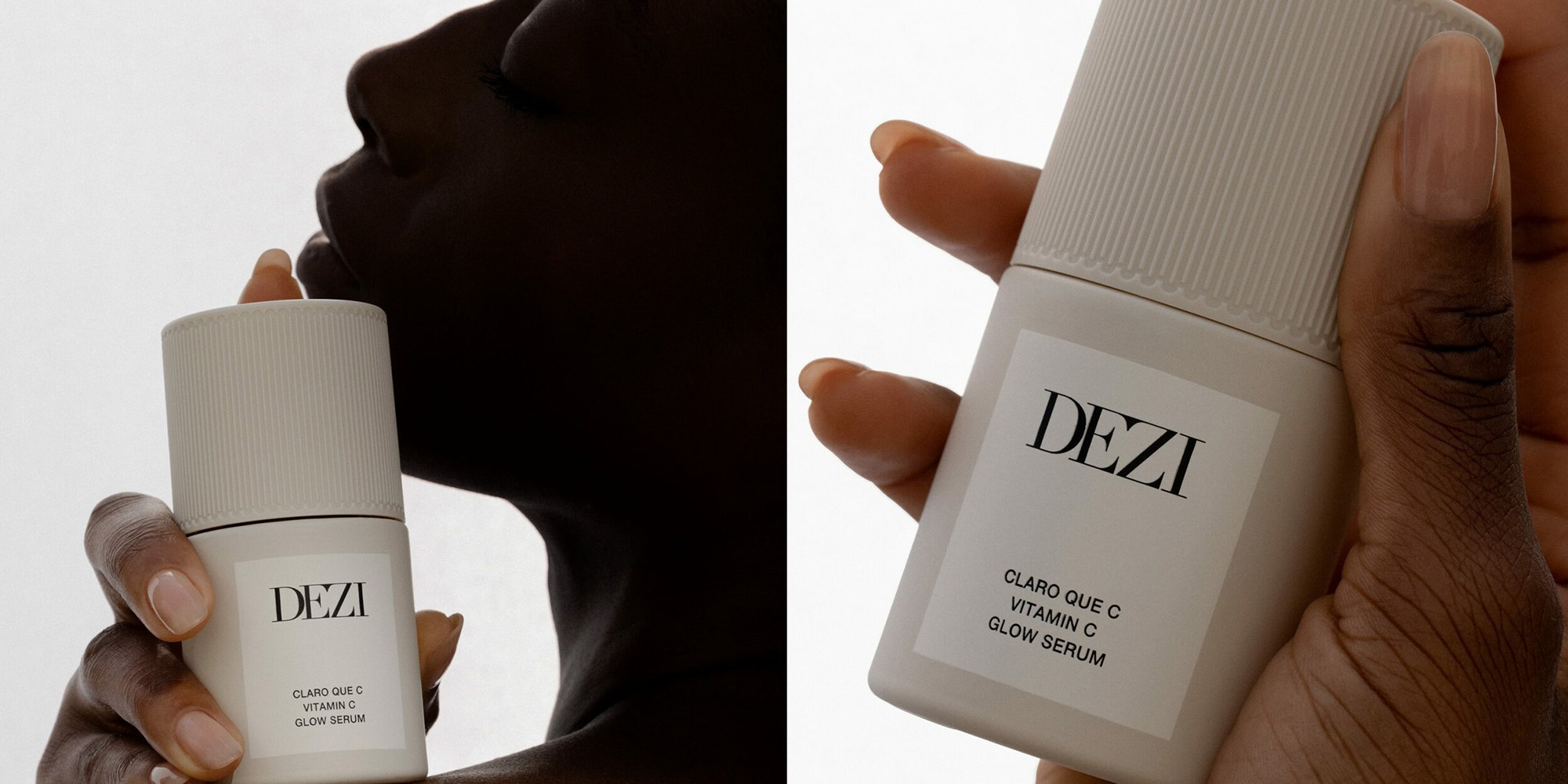
How Incubator Magic Dusk Is Reinventing The Influencer Brand Model
Influencer and celebrity brands have a well-earned reputation for being fleeting cash grabs.
Magic Dusk, the incubator led by founder and CEO Daniel Kiyoi, former creative director at Tarte, and partner and president Melanie Hutchinson, former director of product innovation at Tarte, that works with influencers Desi Perkins and Samantha Ravndahl on the brands Dezi Skin and Auric, respectively, is trying to buck that reputation. Its driving force is identifying the magic dusk that births durable brands connected to not only traditional influencers, but a wider purview of brand founders and community magnets Kiyoi describes as people with influence.
Along with Dezi Skin and Auric, Magic Dusk helped develop the brands Mane Ivy with Peoria, Ariz.-based hair colorist Michelle Zeller and Good Psyche with Trish Mock, an Austin-based techie turned wellness evangelist whose mother Shannon Chanler runs Fallbrook Farms, an herb farm in Geneseo, N.Y. Kiyoi has also teamed up with Katey Hassan, former VP of marketing at Tula, to launch luxury skincare brand Nocturnal.
To produce long-lasting brands, Magic Dusk has clear ideas about the kind of person with influence it’s interested into getting into business with—and not getting into business with. “I am always weary of an influencer that just wants to make money, put their face on something or just be a part of marketing. That’s an automatic no for us,” says Kiyoi. “Even if they have 10 million followers, and we know that they could launch something really strong to start, eventually I do feel like if they don’t have that long-term vision or that long-term investment, it’ll decline.”
Beauty Independent asked him to elaborate on the state of influencer brands and influencer trips, the financial relationship Magic Dusk has with the brands it develops, its slow approach to product launches, why TikTok is like old-school television, the evolution of luxury beauty and beauty retail disruption.
When you started thinking about building Magic Dust, what was going to make it different from other incubators?
I started really early on at Tarte. I think I was employee No. 28. I had a lot of exposure to every single department, so I was hearing about all the problems with packaging, formula development, operational issues, Sephora because they had just entered Sephora. All of us making mistakes as a young brand was instrumental to what I do now.
I was there during the rise of social, the first YouTubers and the birth of Instagram. Witnessing the changes, the speed and the way you need to pivot around social, that training was embedded in me through Tarte. Then, Tarte grew really large and partially for that reason and partially for personal reasons—I wanted to move back to LA from New York, my family is here—I left.
I originally wanted to start a small brand myself, and one of my friends who was a content creator was like, “I know you’re leaving your job, I want your help in creating a one-off product.” So, I helped her with that while I was developing my own brand. I had so much fun doing it with her, I was like, oh, I’m going to pause my own brand, and I have a ton of influencers that I’m really close with, I’m just going to see if any of them want to create one-off products or full brands. That’s how it got started.
Strategically, what I always wanted was to go back to something small and thoughtful, not these massive assortments, and really take time on and invest in the formula, the packaging. Obviously, most incubators are formed with people that have operational experience, and there’s a lot of shared services across the various brands. A lot of incubators want to diversify their portfolio. If you have a lot of eggs, maybe one of them will hatch and do quite well.
There are a few different things about the way we operate at Magic Dusk. We leave full control with the founder—that’s hugely important for us—and they’re not always necessarily a traditional influencer. We call them a person with influence because they could be an expert in the industry, someone that does have influence and has built a community, but isn’t necessarily your traditional influencer.

Do the people with influence you work with have a majority stake in their brands?
They mostly have majority stakes, and we mostly have minority stakes in the brands. The founder has total control over all the final decisions. Of course, we give them a lot of guidance and make sure that they have all the necessary facts in order to make a truly uninformed decision.
But that control is really different than other incubators that bring on a celebrity that maybe just own a part of the brand or a section of responsibility. They’re just there for social and to be the marketing face. We don’t take anyone on unless they’re willing to see every part of the business, and we are very transparent with our operational system. We spent years building a system digitally that’s not an ERP [enterprise resource planning system] because we’re not a giant corporation. We spent a lot of time fine-tuning this system in order to get these brands off the ground.
What does the system allow you to do?
It allows us to everything as basic as COGS to purchase orders to full testing and making sure that we’re keeping track of all the necessary documentation for factories, basically the whole pipeline. We are making sure that essentially the founders we work with are bulletproof. If someone came and asked for specific testing or information about a factory that we’re using, we do all of the validation upfront and have a lot of standards.
What we’ve found is working with content creators or people of influence is that there’s a lot of skepticism, and we want to make sure that we’re empowering our founders to have information and be buttoned-up basically. Our main strength is that we truly educate the people that we work with, which is why it takes us so long to find a founder that we want to collaborate with because we want to make sure that they’re willing to learn about every single aspect of creating the brand.
They are extremely proactive, know the systems and truly have skin in the game to ensure that their businesses are successful. Other incubators that take on a celebrity as a face don’t give the person the visibility into every aspect of the business. A brand can just disappear, and it doesn’t have that much weight for the celebrity. When it comes to celebrities, they’re always going to prioritize their other jobs. Our founders, we want it to be their No. 1 thing.
What’s Magic Dusk’s financial relationship with its brands?
It’s different for every brand, but it falls under three pillars: a retainer, a cut of sales or equity. It doesn’t have to be just one of those three things. It’s a combination sometimes of those three things.
Why did you want to do Nocturnal?
I wanted to do something the opposite of a more masstige or prestige brand. This is a true luxury brand. It’s a completely different demographic and doesn’t compete with our other brands.
What does luxury mean to you?
There’s traditional requirements. It needs to come from a certain area of the world and have provenance. It needs to be limited in distribution so that everyone doesn’t have access to it. It needs to land at a certain price point.
We wanted to play with more modern luxury. We don’t believe that it’s good to have just one provenance. So, the soul of the brand is about a mixture of Japan, Scandinavia, and we’re American obviously. It’s more of this mixed mentality. In general, mixed ethnicity, mixed things are the way of the future. Where traditional luxury had one heritage, one provenance, that doesn’t make sense in a modern world.
We really wanted it to be this entry into luxury. The full-size 30 milliliters is $178. It’s not La Mer or Augustinus Bader prices. It’s for someone that looks at those brands and is curious, but doesn’t want to spend $400 to $500 for a bottle or jar.

Has Magic Dusk taken outside funding?
No, we don’t need to take on funding right now because the brands are responsible for bringing the funding. Once the brands need funding, then we help them fundraise. We are also different than most incubators where we’re not like a fund. We don’t bring the money, we bring the expertise. Again, that comes down to wanting whoever we’re working with to truly invest in the brand so it’s not going to die off.
Eventually, I think we will get funding. The issue is that a lot of investors want to be able to say, we want to invest in this brand instead of giving us the money and letting us decide where the money should go. I think we could find an investor that would really dig in and look at the way that we’re operating and understand, oh, you guys actually would be good stewards of this money. So, that’s not off the table.
It seems like an investor could view Magic Dusk as a way to get exposure to multiple brands and up stakes in the ones that are working.
Absolutely. We’re in charge of a lot of the direction of where the brand ends up going operationally. So, we do have that insight, and we do have the opportunity to get a bigger stake, but it’s never our intention to take full control of any of the brands, and it won’t ever be our intention.
In the market generally, what kind of influencer brand works and doesn’t work?
We’re seeing influencer brands where they’re truly just a face, and they’re there for marketing. They don’t see all sides of the business or aren’t investing a large chunk of their own money. Those businesses are more at risk. A founder that’s just starting a brand that might not be a content creator, it’s their everything. It’s what they eat, breathe, sleep. It’s like they need it to survive.
If the celebrity or influencer doesn’t need it to survive, it’s more at risk of failing. In the future, there are a lot of opportunities for influencers to really invest and educate themselves on the brand side and make it their No. 1.
I hate this general rule where, if it’s an influencer brand, it’s bad or, if it’s a celebrity brand, it’s bad. The involvement of the influencer or the celebrity is going to dictate how good the product is. It’s going to dictate whether or not it does it well in retail.
What do you see happening on TikTok as it relates to brand and product creation?
TikTok is definitely becoming a money opportunity on many fronts, whether it’s someone that creates a one-off product and then is marketing it to get that influx of cash or people are just promoting things through TikTok Shop. Of course, you see those massive threads where everyone is talking about one product because they know it’s popular and they want to capture people that are interested to go to their shop and buy it so they get a cut. Anyone can be an influencer if they’re good at talking about product.
I have a love-hate relationship with TikTok. I love it because I do think that there’s a lot of education on there and so many interesting perspectives that you would never encounter otherwise, but you take it with a grain of salt because not everyone on TikTok is an expert, and everyone on TikTok talks like they’re an expert.
There needs to be checks and balances, which will start to happen. There’s going to be a more peer-reviewed Wiki-type mentality where someone can’t just say something as a quote unquote doctor or as an expert and then have everyone believe it.
TikTok Shop is very, very commercialized, and I don’t know if that’s a bad thing. If we look at traditional commercials back in the day, what were they doing? They were just advertising product to push people into store to buy it. It’s just another form of that. It just feels intense because it’s a lot all the time and from everyone. There needs to be a balance of the show versus commercial. Back in the day when you watched TV, you saw a show and a couple of strategic commercials. If your entire feed is just one big commercial, it starts to feel very imbalanced.
What digital avenues are you using to drive sales and awareness cost effectively?
Organic is still really interesting in the digital space. If you can get your product to people to genuinely test, and you encourage them to really experiment with it, that organic seeding is a really good way of not just getting your product out there, but getting feedback. It’s so different than paying affiliates because obviously that’s a business. It takes a lot of effort and a lot of free product in order to do organic, but it’s not that expensive compared to other forms of marketing.
We’re talking a lot about the relationship between digital and even smaller, more local shops, things that people interact with on the daily. Everyone’s always talking about Sephora and Ulta, but with Good Psyche, how can it be more Austin-based or more New York-based where the farm is and have it be people know that the brand lives in that area?
With Dezi Skin, the only retailer that we’re in right now is the one Thirteen Lune door on Larchmont. Of course, it will expand in the future, but there is a nice relationship that’s very manageable between the digital and the local. That’s a relatively low-cost way of getting more of that community-based exposure.
In the digital space, you get back what you give. If you’re supporting other people, you’re commenting, you’re sharing, you’re engaging with them, then other people will notice that and be interested. A brand can’t be a one one-way street, it’s never going to be successful. A lot of brands are moving really fast, and they’re always worried about the next product. They’re not necessarily thinking about, OK, let’s really sit down and have conversations.

What are your thoughts on distribution of your brands beyond their native digital platform?
I have a really hard time with retail because I like that experience of discovery, but I feel like a lot of the retailers, because they’re so packed, it’s hard to have that interaction. I would like to see the stores shift a bit and create more niche things. Aesop does an incredible job of that. They pay attention to where they’re located and create the store and the assortment based on that.
It is much more difficult to do that with a multi-brand approach, but I do feel like, if there’s any room for disruption, it’s someone that understands the vibe of the area and creates an experience based on that, even if the assortment is relatively similar to other ones. So, if they are in LA, paying attention to what people are liking in LA, same thing with New York. People have a lot of pride around where they’re from and when they’re in a certain location, they want to experience that location.
Do you feel the beauty market is oversaturated?
I go back and forth on this. I feel like the market is very full. I won’t say oversaturated because obviously I’m in the product business. Our brands release at a much slower pace. We don’t adhere to the traditional you have to launch X amount per quarter because I think speed lends itself to not having as good of quality.
Auric, for example, the last thing we launched was over the summer, and it was a travel-size version of a full-size product. Maybe we’ve launched one to two products per year, which is very, very small compared to most companies. For Dezi Skin, we launched holiday kits of existing products and over the summer, we launched a double cleanse, and we haven’t launched anything since. We’re ramping up for a launch in a couple of months. It’s still two to three launches per year.
Once people fall in love with the product that we’re making, they are adamant that we make more. The community is demanding so much more, and we for many reasons, whether it be quality or whether it be funding, can’t launch at the speed that necessarily they want. That’s an interesting dynamic. Instead of shoving things down their throat, it’s kind of nice to be in that position where people are like, we’re so excited, we need newness.
Tarte, your previous employer, is famous for influencer trips. What’s your take on influencer trips?
I was at Tarte when we were pioneering the trips. I want to be clear that influencer trips are not a new concept. Editors were taken away on trips well before influencers, but they had to always say we can’t guarantee coverage. On influencer trips, some brands require X amount of posts and exposure.
Trips have taken on a life of their own. I think that they’re extremely effective still, even to this day. It’s a lot of eyes, it’s a lot of intrigue. It feels like a mini reality TV show, and it feels really different from the influencer’s day-to-day life. So, if someone is highly engaged with an influencer, it feels like they’re taking you on this journey.
There’s backlash for good reason. A lot of the trips are very extravagant and can come off as being wasteful. But, in terms of effectiveness and audience engagement, I believe that they’re still really, really effective. As for the future of them, they’re still going to be happening. Then, you’re always going to have more private moments where an influencer or a celebrity is inviting people into their home for a very special dinner, and it feels less extravagant and more personal.
In terms of new things, I think there’s going to be more around live. TikTok Live has taken off so much over this past couple of years. I think there are going to be events where it feels like a live reality TV show. With cameras and technology, there’s going to be all kinds of things where people will be able to immerse themselves and feel like they’re there as well. With that live and noncurated aspect, you can’t hide things because they’re happening in real time. There’s no filter.
What are your goals at Magic Dusk?
I’m a creative at heart. I studied graphic design and painting. My ultimate goal is always to create beautiful things. I funnel a lot of that energy into product and getting really nerdy about, is the design perfect? Is the packaging functional? Is the formula a really good experience? That’s the No. 1 priority for me.
That is honestly going to create a little bit of struggle and conflict in the future when the brands do have to grow. How do you maintain that level of creativity and detail on a bigger scale? That’s always my North Star, and I 100% think it’s possible.
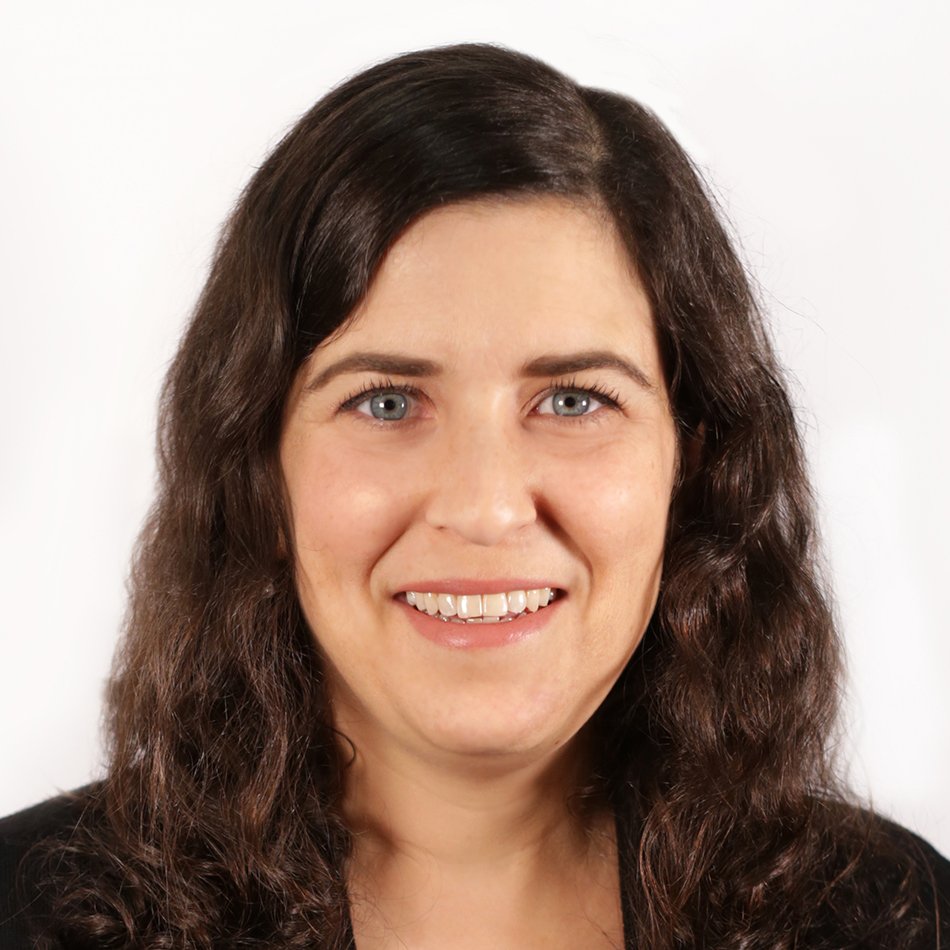
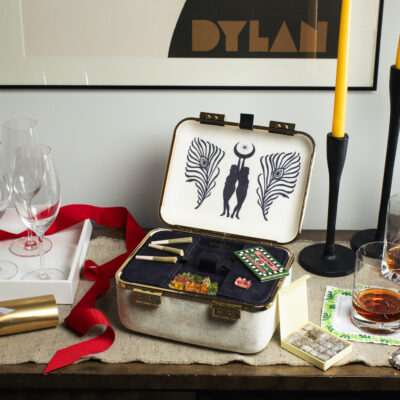
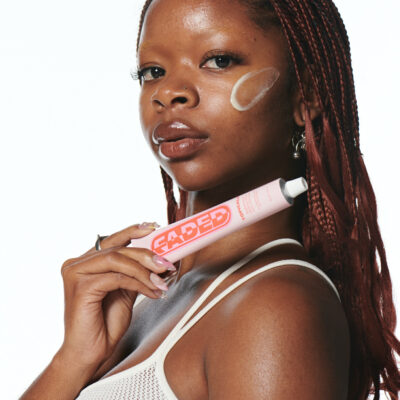
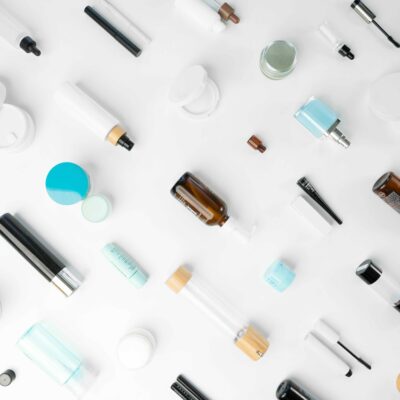
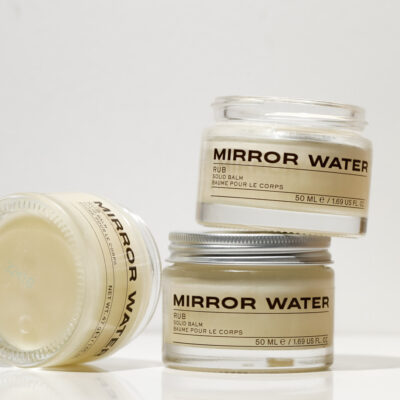
Leave a Reply
You must be logged in to post a comment.